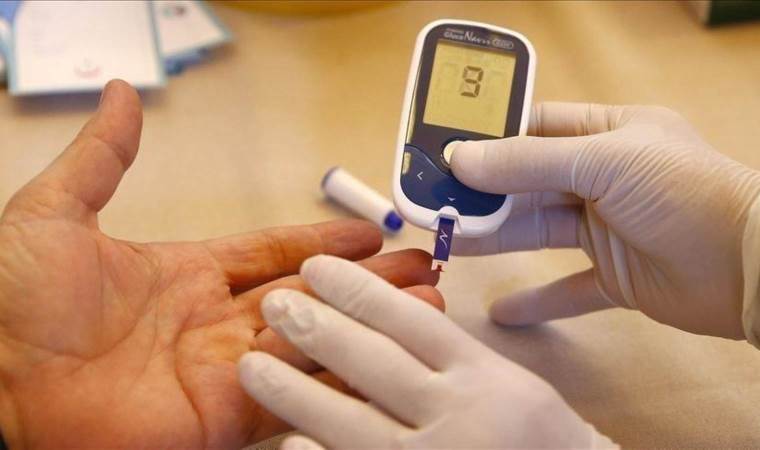Global diabetes cases double to over 800M in 30 years: Study
Global diabetes rate in adults has doubled over the past three decades, impacting more than 800 million people worldwide, according to a recent landmark study published in The Lancet.

The groundbreaking study, the first global analysis of diabetes rates and treatment across all countries, reveals a significant rise in diabetes prevalence, particularly in low- and middle-income nations.
The study, conducted by scientists from NCD Risk Factor Collaboration (NCD-RisC) in collaboration with the World Health Organization (WHO), analyzed data from over 140 million people aged 18 or older, collected through more than 1,000 studies globally.
Findings show that adult diabetes rates rose from roughly 7% in 1990 to 14% by 2022, a jump that experts attribute largely to changing lifestyles, increasing obesity, and widespread health inequalities.
One of the most notable findings is the concentration of diabetes cases in just a few countries. India currently has the world’s highest number of people with diabetes, accounting for more than a quarter of global cases, or approximately 212 million individuals.
China follows with 148 million cases, while the United States and Pakistan have 42 million and 36 million cases, respectively. Indonesia and Brazil add another 47 million combined cases.
These six nations make up more than half of the world's diabetes population, underscoring significant regional disparities in diabetes rates and access to effective treatment.
The study also highlights the distinction between type-1 and type-2 diabetes.
Type-1 diabetes, an autoimmune disorder where the body destroys insulin-producing cells in the pancreas, is less common. In contrast, more than 95% of people with diabetes have type-2, a preventable metabolic disorder that disrupts the body's ability to use insulin effectively.
While genetic factors contribute to type-2 diabetes risk, factors such as obesity, poor diet, and lack of exercise are also major contributors.
Uncontrolled diabetes can lead to serious health complications, including hyperglycemia (high blood sugar), which over time damages blood vessels and nerves, affecting vital organs.
The rising diabetes rates point to significant public health challenges, particularly for low- and middle-income countries where healthcare infrastructure is often less equipped to manage chronic diseases.
Most Read News
-
 Pope Francis dies at 88 after prolonged illness: Vatican
Pope Francis dies at 88 after prolonged illness: Vatican
-
 Kremlin ‘satisfied’ with US position ruling out NATO mem
Kremlin ‘satisfied’ with US position ruling out NATO mem
-
 Russia, Ukraine report airstrikes as Putin’s Easter ceas
Russia, Ukraine report airstrikes as Putin’s Easter ceas
-
 Trump ‘values’ talks with Japan, says Premier Ishiba ami
Trump ‘values’ talks with Japan, says Premier Ishiba ami
-
 US scales back development, diplomatic presence in Afric
US scales back development, diplomatic presence in Afric
-
 Israel bans Palestinian minister from occupied West Bank
Israel bans Palestinian minister from occupied West Bank
-
 At least 33 civilians killed in RSF shelling of Sudan’s
At least 33 civilians killed in RSF shelling of Sudan’s
-
 Gold price exceeds $3,400 to reach new record high amid
Gold price exceeds $3,400 to reach new record high amid
-
 China sanctions US lawmakers, officials, NGO heads
China sanctions US lawmakers, officials, NGO heads
-
 El Salvador’s president calls on Maduro to release Venez
El Salvador’s president calls on Maduro to release Venez










